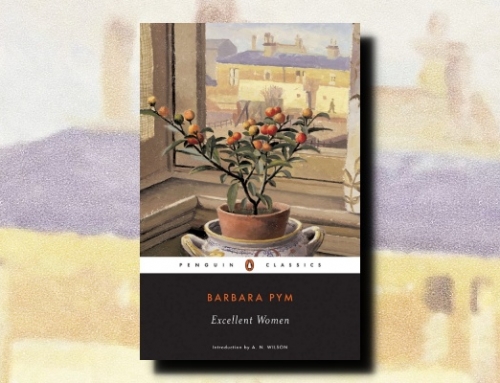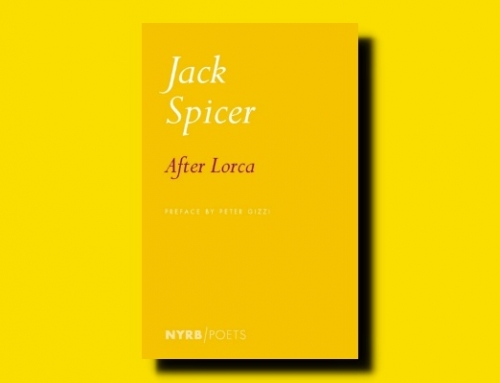
Oscar and Lucinda
by Peter Carey (1988)
Vintage (1997)
432 pp

This was my first Peter Carey (my only, actually, so far). The hype the book garnered wasn’t necessarily the type of hype that attracts me — “millions of painstaking details” kind of sounds like a chore. But I was definitely interested that a book about two gamblers falling in love and conspiring to transport a glass church across the outback in colonial times could also be called “life-changing.” Could it be that good?
Peter Carey’s Oscar and Lucinda was a great trip for me. And the details? Oh yes, they are there. But it’s amazing how comfortable they made me feel. This was not detailed just to sound important (grumble, grumble, Conservationist, grumble); these details conveyed a tone, an atmosphere, and an intricate story — it simply wouldn’t have been as good without them. It was great to have unfamiliar things, places, and concepts explained in such detail that they felt familiar. And it was great to have familiar things described in such detail that they felt new. Definitely do not be discouraged into thinking you have to slog through a marsh to get to the heart of the story.
The story takes place around the mid-nineteenth century, first in England, then in Australia. In the beginning we meet Oscar, the son of a peculiar religious zealot who even slaps his son across the ear because he dared eat a Christmas pudding. Why? Well . . .
He had so convinced his small congregation of farm workers, thatchers, warreners, charcoal-burners, fishermen — all of those earnest white-laundered fold who, if they could read at all, could only do it slowly, with a finger on each word — so convinced them that Christmas was not only pagan but also popish, that they went out about their fields and lanes on Christmas Day as if it were any other day. Their Baptist neighbors laughed at them. Their Baptist neighbors would burn in hell.
Who knows where this story would have ended up without that slap, though?
We also meet Lucinda as a little girl whose father dies and whose mother, also a bit extreme and indignant about the death of her husband, is forced to make a living on the failing farm her husband purchased to make them rich. Lucinda’s mom, Elizabeth, and later Lucinda, must overcompensate for being a woman and suffers from the “disease of neatness.”
Elizabeth Leplastrier believed, as many still believe today, that you can tell everything you need to know about a farmer’s skills by the condition of his sheds and fences, and whilst this may be true enough in a way, it became, for Elizabeth, such a tenet of faith that fences and sheds were attended to in preference to sheep and wheat and, on one occasion that was soon notorious in the district, amongst Protestants and Catholics alike, Mrs. Leplastrier chopped down a Bartlett pear, a ten-year-old tree, healthy and fruitful in every respect, because she could no longer abide it standing out of line.
And in a note about Carey’s prose style: Usually sentences with so many interruptions drive me crazy. It is difficult to get from one end to the other without losing your way. But I think it is nice that when reading the above sentence the first time, I didn’t even notice it was only one sentence. He has great sentence variation and knows when to make a sentence drift along and also when to make it pop.
Back to the story: Oscar and Lucinda grow up. Both are outcasts, Oscar because he’s just really strange and gawky and at ever choice he encounters flips a coin to know God’s will; Lucinda because she’s a woman, a strong-willed woman, a land-owning woman (and kind of strange herself). Both develop a passion for gambling. And then, quite a ways into the novel (but that’s not a bad thing in my book) they meet. It is because of this meeting that Oscar and Lucinda is categorized as a love story. It’s true — it is a love story — and quite possibly one of the most touching I’ve read, neither simple nor convoluted. The characters have many different, deep-running feelings (all of which Carey tracks to some extent): guilt, pleasure, holiness, despair, longing, loneliness, attraction. It’s a rich rich book.
While the story is basically what’s written above, it is more honest to say that the transporting a church thing is just something that happens in the book. An important element in the plot, it is by no means a gimmick that drives the plot. It comes across as the most natural thing in the world. Not only that, but it quite brilliantly allowed Carey to really dig into deep questions of the soul, like faith, doubt, righteousness, hypocrisy, wickedness, the fragility of relationships. While I read this book I really cared for the characters as they struggled to find their identity amidst so much external and internal conflict — and somehow that church helped me feel it even more.
The book is also pretty funny. There are several great parts that made me laugh out loud on the subway, which can be awkward but was worth it here. It was difficult not to laugh. It’s the way Carey describes things and his sense of timing (impossible to convey in a review). And that same talent helps him also acheive a devestating effect in the reader. The comical story is a major part of the novel, but so is the tragedy and despair. The relationships are so important to the characters, who have struggled so hard to connect with anyone. Yet the relationships, while honest, are also desperate. It’s hard to read at times for fear of what discoveries will be made.
One of the most touching and tragic things for me was that I don’t really think that Oscar or Lucinda knew that they were loved by the other. They suspected. They hoped. But the church was a way for each of them to maintain their relationship a bit longer, almost like it was a way for them to stall while figuring out a way to truly win over the other. And what made it even more touching was that even though they had some self-interest, they were also genuinely trying to do something for the other, even if it got them no where.
In some ways, the glass church itself represented their relationship. It was unlikely and beautiful. It was also very fragile. As it floated down the river I cringed each time it bent too far, not necessarily because I admired the church but because I knew what Carey was alluding too (or, at least, that’s the way I took it, so it had the same effect).
Ultimately these two characters gamble everything they care for on each other. This all somehow leads to a very insightful look at faith, colonialism, love, and death (whew! I’ve listed a lot of abstract terms while reviewing this book; Carey is much better than I am at bringing them down to the earth). Some day I will definitely have to reread this one because it deserves more time and I want to learn more from it. And it should be admired. I like the way Angela Carter described it in an early review of the book in The Guardian: like building the Taj Mahal out of matchsticks (by the way, if you want to see what Carter might have had in mind, click here for an exhibit). It’s (back to the book) impressively put together, and quite beautiful.
So is this my vote for the Best of the Booker? No. Though I wanted to get away from it because it is already so well recognized and acclaimed, I honestly thought Midnight’s Children was the best book on the shortlist. But I will not be disappointed if Oscar and Lucinda were to win. Even though it didn’t change my life, I still enjoyed the bit of life I spent reading it.








[…] site. John Gross reviewed it in The New York Times. Paul Gray reviewed it in Time. Trevor Berrett liked it. So did this Trevor. Kate Jonuska was a little disappointed. Jackie became obsessed with the story […]